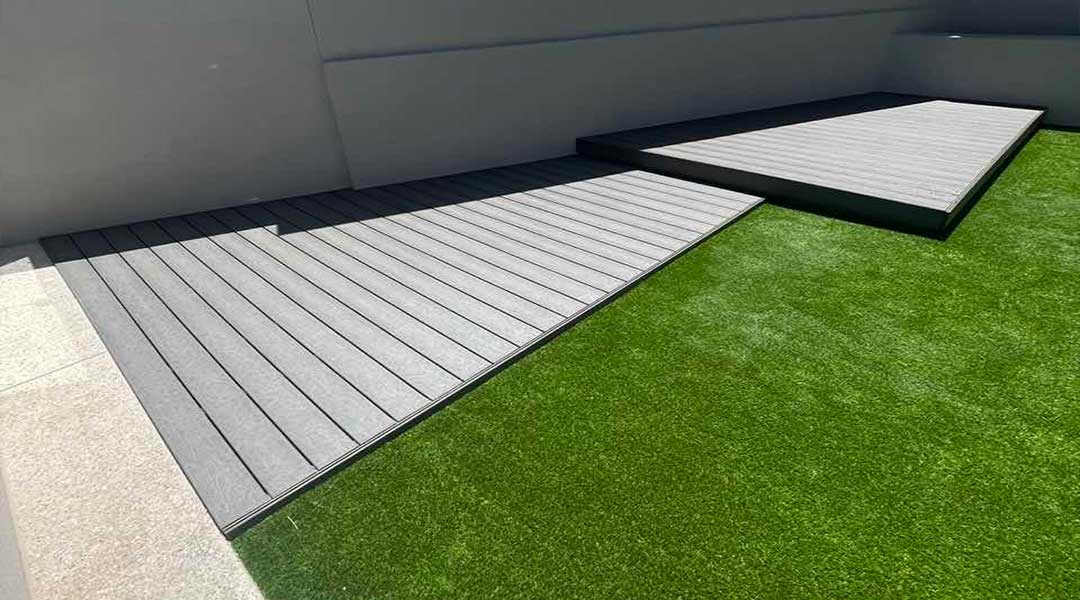As homeowners in Perth seek sophisticated and resilient solutions for their outdoor areas, composite decking emerges as a top contender, blending aesthetic allure with exceptional durability. This contemporary alternative to traditional timber provides a multitude of advantages, making it particularly suitable for Western Australia’s challenging climate. However, to make an informed choice, it’s essential to weigh both the benefits and potential downsides of composite decking. This detailed exploration aims to provide a balanced view, assisting you in determining whether composite decking aligns with your specific needs and preferences.
Pros of Composite Decking
Low Maintenance
One of the most significant advantages of composite decking is its low maintenance. Unlike traditional timber, which requires regular sealing, staining, and protection against pests, composite decking needs only periodic cleaning with soap and water to maintain its appearance. This can save homeowners a considerable amount of time and money over the lifespan of the deck.
Durability
Composite decking is known for its durability. It is resistant to common problems that plague timber, such as rot, decay, and insect damage. This resistance is due to the combination of wood fibres and plastic, which provides a robust material that can withstand the elements. Moreover, composite decking does not splinter or warp, making it a safer option for families with children and pets.
Aesthetic Flexibility
Available in a variety of colours, finishes, and textures, composite decking can closely mimic the look of natural wood while offering a wider range of design options. Whether you prefer the classic appearance of timber or a more modern look, there is likely a composite decking product that fits your aesthetic preferences. Additionally, the color of composite decking tends to fade less over time compared to traditional wood, maintaining its visual appeal for longer periods.
Environmental Benefits
Many composite decking products are made from recycled materials, including recycled wood fibers and plastics. This reduces the demand for virgin timber and helps divert plastic waste from landfills. By choosing composite decking, homeowners can contribute to more sustainable building practices.
Cons of Composite Decking
Heat Retention
One of the drawbacks of composite decking is its tendency to retain heat. In Perth’s hot climate, composite materials can become quite warm under direct sunlight, which can be uncomfortable to walk on with bare feet. This issue can be mitigated by selecting lighter colours or composites with a higher wood content, which tend to absorb less heat.
Cost
The upfront cost of high-quality composite decking can be higher than that of traditional timber. However, when considering the reduced maintenance costs and longer lifespan, the investment can be worthwhile. It is essential for homeowners to weigh the initial expenditure against the long-term benefits when making their decision.
Weight and Strength
Composite decking boards are generally heavier than timber, which can make installation more labor-intensive and require more robust structural support. Additionally, while composite materials are strong, they often have a lower strength-to-weight ratio compared to hardwoods, meaning they may not be suitable for all applications, especially those requiring high load-bearing capacity.
Environmental Impact
Although composite decking uses recycled materials, not all products are equally eco-friendly. Some composites can contain chemicals that are not biodegradable, and most are not recyclable at the end of their life cycle. Homeowners who prioritize environmental sustainability should research and choose products that minimise ecological impact.
Suitability for Perth’s Climate
Perth’s climate is characterised by hot summers, mild winters, and significant UV exposure. These conditions can be harsh on building materials, making the choice of decking particularly important. Composite decking’s resistance to UV radiation and weathering makes it a suitable option for this environment. However, the heat retention issue mentioned earlier is a critical factor to consider. Composites with a higher proportion of wood fibres and lower plastic content are generally better suited to withstand Perth’s intense sunlight and heat, remaining more comfortable underfoot.
Additionally, the low maintenance aspect of composite decking is particularly beneficial in Perth’s climate. The less frequent need for treatment and repairs means homeowners can enjoy their outdoor spaces without the hassle of constant upkeep.
For residents of Perth, Western Australia, composite decking offers a compelling mix of benefits, including durability, aesthetic appeal, and minimal maintenance requirements. While the initial cost may be higher compared to traditional timber, the long-term advantages often justify the investment. It is crucial to choose the right type of composite decking that can handle Perth’s climatic conditions, particularly focusing on products with appropriate heat management properties.
By making an informed choice, homeowners can ensure their composite deck remains beautiful and functional for many years, providing a comfortable and attractive outdoor living space. For more detailed guidance and a range of composite decking options tailored to Perth’s unique climate, visit Jay’s Synthetic Grass.


